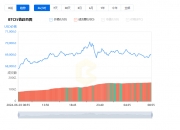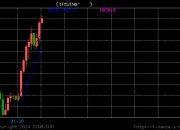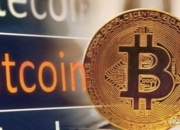
近年来,随着比特币、以太坊等虚拟币的崛起,越来越多的人开始关注和参与虚拟币交易。关于虚拟币交易是否合法的问题一直备受争议。本文将分两部分深入探讨虚拟币交易的合法性问题,揭开关于虚拟币的种种误解,为读者提供全面而权威的信息。
In recent years, with the rise of virtual currency such as Bitcoin and Etheria, more and more people have become interested in and involved in virtual currency transactions. The question of whether virtual currency transactions are legal has been controversial.
虚拟币,亦称数字货币,是基于区块链技术的一种新型电子货币。比特币作为最早的虚拟币,自2009年诞生以来,引发了全球范围内的关注和讨论。随着时间的推移,各种虚拟币如雨后春笋般涌现,虚拟币市场也迅速膨胀。目前,虚拟币不仅仅是一种投资工具,甚至在一些国家和地区被用作支付手段。
Virtual currency, also known as digital currency, is a new type of electronic currency based on block-chain technology. Bitcoin, the first virtual currency, has generated global attention and discussion since its inception in 2009.
不同国家和地区对虚拟币交易的态度不尽相同,这也是导致人们对其合法性产生疑问的主要原因之一。以下是几个主要国家和地区对虚拟币交易的监管态度:
The different approaches to virtual currency transactions in different countries and regions are one of the main reasons why questions are raised about their legitimacy. The following are the regulatory attitudes of several major countries and regions with regard to virtual currency transactions:
美国对虚拟币交易的监管相对宽松,但也不乏严格的法律法规。美国证券交易委员会(SEC)和商品期货交易委员会(CFTC)对虚拟币交易进行监管。SEC主要关注虚拟币是否属于证券,而CFTC则将虚拟币视为大宗商品。美国还要求虚拟币交易所注册并遵守反洗钱(AML)和了解客户(KYC)等规定。
The US’s Securities and Exchange Commission (SEC) and the Commodity Futures Trading Commission (CFTC) regulate virtual currency transactions. SEC focuses on whether virtual currency is a security, while CFTC treats virtual currency as a commodity.
中国对虚拟币交易的监管非常严格。早在2017年,中国人民银行等七部委就发布了《关于防范代币发行融资风险的公告》,明确禁止通过ICO(首次代币发行)进行融资,并关闭了境内虚拟币交易平台。尽管如此,个人持有虚拟币并不违法,但进行相关交易仍需谨慎。
As early as 2017, seven ministries, such as the People’s Bank of China, issued a bulletin on protection against the risk of financing the issuance of tokens, explicitly prohibiting financing through the ICO (first issue of tokens), and closing down domestic virtual currency trading platforms. Nevertheless, it is not illegal for individuals to hold virtual currency, but it is still necessary to exercise caution in carrying out related transactions.
日本是较早对虚拟币交易进行合法化的国家之一。2017年,日本通过了《支付服务法》修正案,正式承认比特币等虚拟币为合法支付手段,并对虚拟币交易所进行严格监管,要求其必须获得政府许可并遵守相关规定。
Japan was one of the countries that legalized virtual currency transactions earlier. In 2017, Japan passed amendments to the Payment Services Act, formally recognizing virtual currency, such as Bitcoin, as a legal means of payment, and strictly regulated the virtual currency exchange, requiring it to obtain government permission and comply with the relevant regulations.
欧盟成员国对虚拟币交易的监管态度不一,但总体上趋于严格。欧盟委员会发布了多项指令,要求虚拟币交易所和钱包服务提供商遵守反洗钱和反恐融资规定。欧洲中央银行也在考虑推出数字欧元,以应对虚拟币的挑战。
European Union member States have adopted different, but generally stringent, regulatory approaches to virtual currency transactions. The European Commission has issued several directives requiring the Virtual Currency Exchange and wallet service providers to comply with anti-money-laundering and counter-terrorism financing requirements.
虚拟币交易是否合法,主要取决于各国的法律法规。一般来说,判断虚拟币交易是否合法可以参考以下几个标准:
In general, the following criteria can be used to determine whether virtual currency transactions are legal:
查看所在国家或地区是否承认虚拟币的合法地位,并了解相关法律法规。例如,美国承认虚拟币为大宗商品,日本则承认其为合法支付手段。
See if the country or region recognizes the legal status of the virtual currency and the relevant laws and regulations. For example, the US recognizes the virtual currency as a commodity, while Japan recognizes it as a legal means of payment.
了解虚拟币交易所是否需要获得政府许可,并遵守反洗钱和了解客户等规定。例如,中国要求关闭境内虚拟币交易平台,而美国和日本则有严格的监管要求。
For example, China requires the closure of domestic virtual currency trading platforms, while the United States and Japan have strict regulatory requirements.
了解虚拟币交易是否需要缴纳税款,以及税率如何。例如,美国要求对虚拟币交易所得缴纳资本利得税,而日本则对虚拟币交易征收消费税。
For example, the United States requires a capital gain tax on the proceeds of virtual currency transactions, while Japan imposes a consumption tax on virtual currency transactions.
个人持有虚拟币一般不违法,但进行虚拟币交易时需遵守相关法律法规。例如,中国禁止ICO融资,但个人持有虚拟币并不违法。
For example, China prohibits ICO financing, but it is not illegal for individuals to hold virtual currency.
即便在法律允许的范围内进行虚拟币交易,投资者仍需面对诸多风险。这些风险包括但不限于:
Even where virtual currency transactions are permitted by law, investors still face a number of risks. These risks include, but are not limited to:
虚拟币市场价格波动剧烈,投资者需具备较高的风险承受能力。
Virtual currency markets are highly volatile and investors need to have higher risk tolerance.
虚拟币依赖区块链技术,一旦出现技术漏洞,可能导致虚拟币被盗或丢失。
Virtual currency relies on block chain technology, which can lead to the theft or loss of virtual currency in the event of a technological gap.
法律法规可能随时变化,投资者需随时关注政策动向,避免触犯法律。
Laws and regulations may change at any time, and investors need to keep abreast of policy developments and avoid breaking the law.
虚拟币交易平台的安全性和信誉度参差不齐,选择正规、受监管的平台至关重要。
Virtual currency trading platforms have mixed security and credibility, and the choice of a formal, regulated platform is critical.
结合前文所述,不同国家和地区对虚拟币交易的态度不同,导致其合法性存在差异。为了更好地理解虚拟币交易的合法性,我们可以从以下几个方面进行分析:
In order to better understand the legitimacy of virtual currency transactions, we can analyse the following aspects:
虚拟币的定义和分类直接影响其法律地位。例如,在美国,比特币被视为大宗商品,而在日本则被视为合法支付手段。这种差异导致了不同国家对虚拟币交易的不同监管方式。
For example, in the United States, bitcoin is considered to be a bulk commodity, while in Japan it is considered a legal payment device. This difference leads to different ways of regulating virtual currency transactions in different countries.
了解所在国家或地区的法律法规,特别是关于虚拟币交易的具体规定。例如,中国禁止ICO融资和虚拟币交易平台,但并未禁止个人持有虚拟币;而美国和日本则对虚拟币交易所进行严格监管。
For example, China prohibits ICO financing and virtual currency trading platforms, but it does not prohibit individuals from holding virtual currency; the United States and Japan strictly regulate virtual currency exchanges.
随着虚拟币市场的全球化发展,各国政府间的国际合作和监管协调变得尤为重要。例如,欧盟成员国之间在虚拟币监管方面逐步趋于统一,以应对跨国虚拟币交易带来的风险和挑战。
With the globalization of the virtual currency market, international cooperation and regulatory coordination among governments have become particularly important. For example, there has been a gradual convergence in the regulation of virtual currency among EU member states to address the risks and challenges posed by cross-border virtual currency transactions.
对于希望参与虚拟币交易的投资者而言,遵守法律法规至关重要。以下是一些法律合规建议:
The following are recommendations for legal compliance:
投资者应深入了解所在国家或地区的虚拟币相关法律法规,确保自身行为合法合规。
Investors should have an in-depth understanding of the laws and regulations relating to virtual currency in the country or territory in which they are located and ensure that they comply legally with their actions.
选择受监管的正规虚拟币交易平台,确保交易安全。例如,美国和日本对虚拟币交易所的监管相对严格,投资者可优先选择这些国家的交易平台。
Select a regulated formal virtual currency trading platform to ensure the security of transactions. For example, the United States and Japan have relatively strict regulations on virtual currency exchanges, and investors have a preference for trading platforms in these countries.
了解虚拟币交易的税收政策,依法缴纳税款。例如,美国要求对虚拟币交易所得缴纳资本利得税,投资者需按规定申报并缴纳税款。
The United States, for example, requires a capital gain tax on the proceeds of virtual currency transactions, and investors are required to declare and pay taxes.
虚拟币市场波动较大,投资者应具备较高的风险承受能力,并采取有效的风险防范措施。例如,分散投资、设置止损点等。
Virtual currency markets are highly volatile, and investors should have higher risk tolerance and take effective risk precautions. For example, diversification of investments, establishment of cut-off points, etc.
虚拟币市场的快速发展,促使各国政府不断完善相关法律法规。未来,虚拟币交易的法律趋势可能包括以下几个方面:
The rapid development of the virtual currency market has prompted governments to improve their laws and regulations. In the future, legal trends in virtual currency transactions may include the following:
随着虚拟币市场的成熟,各国政府可能会进一步加大对虚拟币交易的监管力度,确保市场健康发展。例如,增加对虚拟币交易所的监管要求,提高反洗钱和反恐融资的标准等。
As the virtual currency market matures, governments may further increase their regulation of virtual currency transactions to ensure healthy market development. For example, increasing regulatory requirements for virtual currency exchanges and raising standards for anti-money-laundering and counter-terrorism financing.
虚拟币市场的全球化特点,促使各国政府加强国际合作,共同应对跨国虚拟币交易带来的挑战。例如,欧盟成员国之间的合作、G20国家间的协调等。
The globalized nature of the virtual currency market has prompted Governments to strengthen international cooperation to meet the challenges posed by cross-border virtual currency transactions. For example, cooperation among EU member States, coordination among G20 countries, etc.
随着虚拟币技术的不断发展,相关法律法规也需不断完善,以适应市场变化。例如,针对新型虚拟币和区块链应用的法律制定,以及对虚拟币交易行为的进一步规范等。
As virtual currency technology continues to evolve, the relevant laws and regulations need to be improved to accommodate market changes. For example, legislation is being developed for new types of virtual currency and block chains, as well as further regulation of the conduct of virtual currency transactions.
虚拟币交易是否合法的问题,因各国法律法规的不同而有所差异。投资者在参与虚拟币交易时,应深入了解所在国家或地区的法律法规,选择正规交易平台,遵守税收政策,并采取有效的风险防范措施。未来,随着虚拟币市场的不断发展和成熟,各国政府将进一步完善相关法律法规,加强国际合作和监管协调,以确保虚拟币市场的健康稳定发展。希望本文能够为读者提供有价值的信息,帮助您在虚拟币投资的世界中更加自信和安全。
In the future, as the virtual currency market continues to grow and mature, governments will further improve their laws and regulations and strengthen international cooperation and regulatory coordination to ensure the healthy and stable development of the virtual currency market. It is hoped that this paper will provide readers with valuable information to help you become more confident and secure in the world of virtual currency investments.
注册有任何问题请添加 微信:MVIP619 拉你进入群

打开微信扫一扫
添加客服
进入交流群




















发表评论